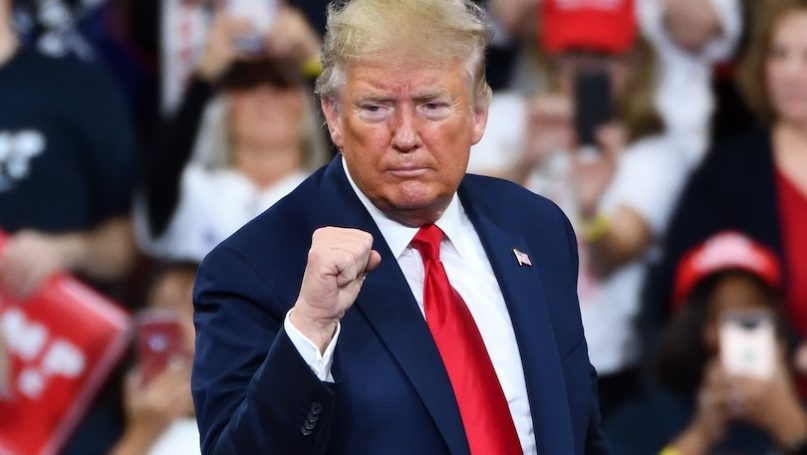
This case study is an excerpt from McGlinchey, Stephen. 2022. Foundations of International Relations (London: Bloomsbury).
The Joint Comprehensive Plan of Action (JCPOA) is an international agreement reached between Iran, the five permanent members of the Security Council, Germany and the European Union in 2015. In response to fears about Iran developing a nuclear weapons programme, it agreed to specific nuclear non-proliferation measures. In return, a large number of sanctions on Iran were lifted, subject to a strict inspection regime led by the International Atomic Energy Agency (IAEA). The UN Security Council formally endorsed the plan through Resolution 2231. Although the Trump administration withdrew from the JCPOA in 2018 and then passed a range of executive orders placing sanctions on Iran (pictured), this case study shows the normative environment that persists even in situations where an international agreement allegedly ‘fails’.
The JCPOA is an apt, albeit complex, example of how diplomacy, politics and law interact. For realists in particular, the withdrawal of the United States was an example of how national security calculations and/or changes in domestic policy preferences take precedence over international law. By this reading, the US and Iran entered the agreement when they had a political and security calculus that rendered the deal convenient. Then, when that calculus shifted, marked by Donald Trump’s arrival in office in 2017, the US simply withdrew without relying on the formal conflict resolution mechanism in the agreement and imposed new sanctions on Iran thereafter. For realists, the entire situation shows how quickly compliance with an agreement can change when a state’s priorities change. Yet, there is more to the story. Diplomacy relies heavily on agreements, whether they are regarded as formally binding or not. The JCPOA was an example of this as it contained detailed provisions and specific commitments, in many ways resembling a contract.
When assessing the situation of the Trump administration’s withdrawal from an international law angle, the first question would be to determine whether the JCPOA had any binding effect. We can examine this by looking at the ‘legality’ of the US withdrawal under international law. For example, Iran’s subsequent decision not to fulfil parts of its commitments could be qualified as a justified reaction to the ‘unlawful’ withdrawal of the US from the agreement. The Trump administration repeatedly stated that the JCPOA was a mere political commitment, not an executive agreement or binding treaty. But, the JCPOA resembled an international agreement in many ways: it contained very detailed provisions about commitments of the parties, implementation, duration and dispute settlement. Under international law a treaty is any international agreement concluded between states in written form and governed by international law. Domestic designations and internal laws do not directly affect the validity of an international agreement. Neither does a change in leadership automatically imply that international agreements entered by previous administrations can be easily terminated. Even if we assume that all parties to the JCPOA agreed that it was a non-binding political commitment, international lawyers would still consider whether the formal endorsement by the UN Security Council created any legal obligations for the states concerned (see Mulligan 2018).
Perhaps recognising the legal weaknesses of such arguments, the Trump administration also spoke of alleged breaches of the JCPOA, accusing Iran of hiding enrichment activities over and above the agreement. If true, this would be one of the recognised grounds to cease performing the commitments under the JCPOA. Yet, the Trump administration gave no clear evidence of this, nor could any be found by third parties. Understanding this case from an international law perspective would also lead us to consider the wider and long-term effects of the JCPOA, even despite its failures. Abstract concerns and areas of conflicting interests had to be negotiated and put in writing, requiring a general consensus on wording and meaning. More broadly, the agreement has given several states, and an international organisation (the European Union) a leading role in diplomatic negotiations with Iran. This represents a wider international will to find ways to continue engagements with Iran due to the economic and political benefits.
Even when agreements seem to fall apart, they leave lasting effects and relations that a basis for future negotiations. Indeed, that precise scenario was what allowed the successor Biden administration (2021–) to swiftly resume negotiations with Iran after taking office. International law’s intrinsic value is therefore firmly connected to a multilateral and multilayered understanding of international relations that are often invisible when looking only at the surface level.